February 10, 2016
by David Goodale
The Difference Between Qualified/Non-Qualified and Interchange Plus Pricing

The process of collecting bids and selecting a credit card processor is not an easy job. If you have just been tasked with doing some research and receiving quotes from a few potential vendors, understand that you have been given a difficult job.
Complicating the task is the fact that different processors use different pricing models. This can make it very difficult to compare two different potential processors.
The task cannot be adequately completed without educating yourself on the single most important factor of all when shopping for a merchant account provider: understanding the pricing models used in the different types of quotations you receive.
Aren't the different pricing methods mostly the same?
NO.
If the above statement is not clear enough, please imagine some inappropriate curse words and six or seven exclamation points reinforcing it. It is brutally, painfully important to understand just how "not the same" they are.
If you go at the task with little effort and just select the quote that appears lowest at a glance, you are nearly assured to be taken advantage of, and badly. This is the world of banking, and business, and as a business owner or employee, it is your highest responsibility to protect the interests of the business you represent.
If you do not put effort into properly understanding the quotations you receive you are putting yourself in a position of significant risk, and I cannot state it any more clearly than that.
Who Can You Trust?
If it sounds like doom and gloom, fear not, because the majority of merchant account providers are honest, helpful, and appreciate their customers. With that having been said, the simple (and unfortunate) fact exists that there are some credit card processors out there who have predicated their business model on delivering pricing that sounds good, but is not. These processors often lock merchants into extended contracts with unclear pricing which you cannot cancel without large penalties.
I am being more pointedly direct in this blog post than I normally am. Perhaps it comes from seeing lost clients over the years where I lost the quote, and they later came back to me and said that they wish they had selected us. In short, I can't win them all, nor should I. That is the world of business. But it hurts when you lose a potential customer that you genuinely could have helped, and you know that they aren't going to receive what they think they are going to receive. Those are the ones that hurt, and that, I think is what drives my passion on this particular topic.
With my rant coming to an end, let's get into thick of it and learn how to read between the lines and remove the confusion that obscures the qualified / non-qualified pricing model. By the time you have finished reading this you will be able to separate good quotes from ones that should be shredded, stomped on, put in a waste basket, lit on fire, and shot into space.
What Is Interchange Plus Pricing?
Interchange plus pricing (also sometimes called "cost plus" pricing) is the most transparent pricing model in the world of credit card payment processing. With this pricing model the processor tells you, exactly, how much money they will earn from your account. In other words, they disclose their margin (profit) above interchange to you directly in the quote.
Interchange plus pricing is extremely popular with large businesses, and less popular with smaller businesses. It's less popular because many small business owners do not know to ask for interchange plus pricing, and many credit card processors, understandably, benefit by disguising or not transparently disclosing how much money they are earning on an account. As such, a significant number of credit card processors don't offer interchange plus pricing as an option. If receiving a quote you should (and are within your right) to directly request interchange plus pricing.
What Is Interchange and How Does It Work?
In order to understand interchange plus pricing, you must understand at least to some degree what interchange is. This has been covered in more detail in a previous discussion titled what is interchange and why is it important? However, we will cover it off at a high level here.
Every time a credit card transaction is processed, the credit card processor incurs a fee from Visa or MasterCard. As a merchant you may not have realized this previously. It is important to realize that your credit card processor does not get to keep all of the fees that they collect from you. The majority of the fee is paid back to Visa or MasterCard, and onward to the card issuing bank. In other words the bank that issued the card to the cardholder earns more than any other party when it comes to the fees that are incurred when processing credit card transactions. This fee that the credit card processor must pay is called interchange.
There are a few things that you should know about interchange:
- Interchange fees are the same for all payment processors within the same region. All credit card processors in Canada pay the same interchange fees back to Visa/MasterCard Canada. All processors in the USA pay the same interchange fees back to Visa/MasterCard USA, etc. No processor receives lower interchange costs than another which forms a fair and even playing field. This is the basis for why interchange plus pricing allows for an apples-to-apples comparison at a pricing level between different potential processors.
-
Interchange is set by card type. Visa and MasterCard debit cards are the least expensive cards to process. Basic cards are the next least expensive. Rewards cards are more expensive. Super-premium rewards cards are the most expensive. You can view the actual interchange rates on the Visa and MasterCard websites or view our interchange quick reference excel sheet. However, at a high level, you simply need to understand that basic cards cost a bit less, and rewards cards cost a bit more. Here is a quick reference list for Canadian interchange that is accurate as of January 1, 2016.
- Basic Visa: 1.52%
- Rewards Visa: 1.71%
- Basic MasterCard: 1.59%
- Rewards MasterCard: 1.89%
- There are more card breakdowns, but these are the most popular cards.
- The way the transaction is processed will impact interchange. There are two main tiers of interchange. The first tier is for card-present transactions. This is where the customer is physically present with their credit card, and they insert it into a POS machine. Within Canada, the interchange for card present transactions is slightly (0.11%) less expensive than card-not-present (e-commerce) transactions. It's important to note that the cost difference is relatively small, but is still something to be aware of. Although the cost different isn't huge at an interchange level, this distinction between card present and card-not-present will become very important when we look at qualified/non-qualified pricing in a moment below.
- If you sell to international customers (located outside of Canada) Visa and MasterCard will assess additional cross border fees of 0.40% or 0.80% (depending on the location of the cardholder and currency processed). One very important note is that with interchange plus pricing the cross border fees and assessment fees are always passed through at trust cost, whereas with non-qualified pricing assessment and cross border fees are often inflated beyond cost. Although cross-border fees are a bit beyond the intended scope of this article, this another significant place where qualified/non-qualified quotes will pad in extra margin (profit) for the processor.
What Is Qualified / Non-Qualified Pricing and How Does It Work?
Whereas interchange plus pricing is based upon the interchange cost as set by Visa and MasterCard on each transaction, qualified / non-qualified pricing is based upon a definition created by the credit card processor itself. It can be anything on earth that the processor chooses to put into it's agreement. It's oftentimes not clearly written, is loosely defined in the language of the agreement, and is not easy to understand.
The basic mechanics of qualified pricing is that a merchant will receive a very low and attractive rate. This rate will look fantastic, and in most cases is certain to be lower than the rate a merchant would receive on an interchange plus quote. The issue is that a merchant will rarely or never pay the qualified rate. In fact, in the vast majority of cases e-commerce merchants can literally never pay the qualified rate ever, and will instead pay the non-qualified rate, which is much higher. In many cases, a qualified / non-qualified quotation may not even mention the fact that there is a non-qualified fee or how much the non-qualified fee is. When assessing a qualified / non-qualified quotation it's most important of all to understand exactly what will cause a non-qualified fee to be incurred and how it's calculated. Merchants are often surprised to learn that they can never actually pay the qualified rate, which begs the question why it's even presented that way on the quotation. With this understanding in mind, you can see why this pricing model has a bad reputation.
Is Qualified / Non-Qualified Pricing Inherently Bad?
There is nothing inherently wrong with qualified / non-qualified pricing, nor is a quote using that pricing model immediately suspect. It does mean that you must be far more vigilant though. The problem is that when you receive a quote with this pricing model it's often vague and gives businesses little accountability, little cost certainty, and thus little control over costs.
With that having been said, we can consider a fair question:
If a credit card processor knows a merchant runs an e-commerce website, it means they know the merchant can never, literally not ever, process a card-present transaction. If this is true, why would they provide a quotation based upon card-present transactions, and present a qualified rate that they know the merchant will never actually get to pay?
The answer to this question takes us to the darker side of the non-qualified pricing model. Certainly not all processors would do this, but some do. It's the reason why this pricing model is by far less desirable for any merchant that does card-not-present transactions. There are some processors out there that use this pricing model to tell people what they want to hear, give an impression of a very low rate, and the business owner can end up being taken advantage of. Fortunately, having read this, it's much less likely to happen to you.
A real world example
I'll give a common example that I have personally run into many times when quoting potential clients.
For this example to make sense, I have to point out that at Merchant Accounts.ca we are primarily an e-commerce credit card processor. This is relevant because most of the time when delivering a quote, we are quoting people who are taking orders over the phone and keying them in on their computer, or are taking the orders on their website. In these situations a merchant may receive my quote and tell me that they have received a lower quote elsewhere. When this occurs I ask what rate they received that they want me to beat. This is when the business owner will oftentimes respond back with a rate that is far, far below interchange cost.
Having worked in payments for 15 years, the second a merchant says something like "You need to beat 1.49%" (or something like that) – the second I hear that I know the business owner has received a qualified rate that they will never, ever pay. The reason why is tremendously simple: the quoted rate is well below the bank or processors interchange cost to process the transaction. Banks don't lose money, and without even having to ask I know they have received a qualified / non-qualified pricing quotation.
When I hear that I know what is happening and try to explain it to the client. I know that interchange on a basic Visa basic card in Canada (card not present environment) is 1.52%, and rewards cards cost even more. So, when an e-commerce merchant tells me they have a quote of 1.49%, I know, with certainty, that they are not ever going to get what they think they are going to receive.
This is the crux of the matter. When the situation arises I try to explain what interchange is, how it works, and the costs for basic cards, rewards cards etc. Most often the folks on the other end of the phone will listen and genuinely appreciate it. Sometimes people will cut me short and say "Look, just give me your best price. I don't have time for this". When that happens, it hurts. Because I know this person is going to end up on the phone with someone that will be all too happy to tell them what they want to hear. It's the worst possible way to go about seeking quotes. It's why I say:
When shopping for a merchant account provider, you MUST have at least a basic understanding of interchange.
If you have a basic understanding of interchange, it becomes ever so easy to spot suspect quotes. Processors don't lose money. It's that simple. If you get a quote that is near to (or especially below) interchange be extremely wary. That's why being aware of interchange (even just at a basic level) will help you spot suspect quotes. If the person providing the quote to you doesn't talk about card types, about non-qualified fees, or how they are calculated, you should run. It's that simple.
Let's Get Technical, How Are Non-Qualified Fees Calculated?
To figure out how non-qualified fees are calculated we need to start with two questions:
1) When will I get to pay the qualified rate?
2) How much extra will it cost me when I don't pay the qualified rate?
Asking those two simple questions can prevent an astonishing amount of frustration in the future. We'll explore them now...
1) When will I get to pay the qualified rate?
You will get the qualified rate only when BOTH of the following are true:
- The customer has completed the purchase in person and you physically have run the credit card through a point of sale machine. (Think of your business, are you standing there with your customer, who has their card in hand?).
- The customer has used a basic card that does not offer points, airmiles, benefits or rewards of any kind. Consider how popular rewards cards are, and the type of people you are selling to for a moment. If you are selling to a young demographic or to people with little disposable income you could see few rewards cards, but outside of that demographic rewards cards are hugely popular. Most businesses will see a large number of rewards cards.
- For the sake of being thorough I should point out that theoretically, a processor could give the qualified rate on card-not-present transactions. If so, it would be explicitly stated in your merchant agreement that card-not-present transactions would receive the qualified rate. However, this almost never (and I mean almost never) is the case. So, it's not that it's impossible (as the processor is just making up what "qualified" means anyway in their own merchant agreement). Just be explicitly clear though, it is extraordinarily rare for a processor to provide a qualified rate for card-not-present transactions.
2) How do I calculate the non-qualified rate?
Non-qualified fees can be much more complicated to calculate than you may expect.
If you have a qualified rate of 1.50%, and a non-qualified fee of 0.50%, shouldn't that mean that your total rate when processing a non-qualified transaction is 2%? If this logic makes sense to you THEN STOP IMMEDIATELY BECAUSE YOU ARE WRONG. Your logical assumption makes total and perfect common sense. Sensible and logical assumptions can get you into a lot of hot water in the payments industry.
First, you must be aware that interchange costs are usually passed through on top of the non-qualified fee. If your qualified rate is based on card-present transactions, the processor will likely ding you for the difference in interchange between a card present transaction and a cared not present transaction in addition to the non-qualified fee. Let me clarify with the following example:
- Merchant has a qualified rate of 1. 50%
- Non-qualified rate of 0.50%
- Qualified rate is based on card-present transactions.
- Merchant processes all their transactions in a card-not-present setting.
- In this example, we'll pretend the merchant processes an airmiles (Visa rewards) card.
This is the result :
- Merchant pays the difference in interchange cost between a card present and a card-not-present transaction. (0.11%)
- Merchant pays the interchange cost increase for the rewards card (0.19% more than a basic card)
- Merchant pays the non-qualified fee of 0.50%
- The merchant ends up paying 1.50% + 0.11% + 0.19% + 0.50%
- Total rate = 2.3%.
But it gets worse as you'll see in one moment below with the inclusion of something we've not gotten to yet, which is called the "mid-qualified" fee. However, even without getting to the mid-qualified fee you can see that the calculation is often not as straight forward as it appears. So that you know, the cost differences in interchange are very often, but not always, tacked on as an additional fee on top of the non-qualified fee. Whether or not the interchange differential fees are passed on will be detailed in your merchant agreement, which we will talk about in a few moments.
Beware the Mid-Qualified Fee
Some processors have 3 tiers to their pricing agreement:
- Qualified
- Mid-Qualified
- Non-Qualified
A mid-qualified fee is an extra tier of fees that processors can use to stack on top of each other. Quotations with mid-qualified fees are much worse than those without.
Most often, the mid-qualified fee will apply if the transaction isn't processed in person (when you process a card-not-present transaction). Then, the non-qualified fee will still apply and stack on top if a rewards card is being used (for example, a Visa airmiles card). This means that when you process a rewards card where the order is taken over the phone you'll pay both the mid-qualified fees and the non-qualified fees (and likely the interchange differential fees as well) making it a very expensive transaction. In short, it's best to decline any quotation in which there are mid-qualified fees.
You Must Read the Merchant Agreement
Reading the merchant agreement is absolutely critical. You should always do this (for many reasons) but it's especially important if you are choosing a provider with qualified / non-qualified pricing. You can't work from the quote, or from emails. You need to review the actual merchant agreement (the contract). It will specify when and how non-qualified fees will be charged. For clarity, I am talking about the long, confusing and complex legal agreement that you will sign when you submit your application for a merchant account.
Like many people, you may not want to read it, but it's important to do, especially if you are looking at a processor that uses qualified / non-qualified pricing. There is no avoiding this step unless you are willing to gamble that you'll receive what you expect. Within the agreement look for terms like "assessments", "downgrade", "interchange", "passthrough" or "non-qualified". The language in the clauses related to these terms will determine how the non-qualified fees are calculated and when they are charged.
For the sake of stating it, you must also read the agreement even when doing interchange plus pricing. In short, always read your merchant processing agreement before signing. It's long, boring, and difficult to understand. But, much like anything else in life, the hard work will pay off if you catch something that could have caused a problem in the future!
Wait, What About Flat Pricing?
There is a 3rd pricing model which we have not discussed, which is flat pricing.
Flat pricing is a fantastic pricing model that I have no reservations about recommending. It's also by far and away the easiest to explain, understand and reconcile. With a flat pricing model, the type of card used and how it's presented no longer matter. The processor absorbs the fluctuations in interchange cost so you don't need to worry about it. I don't have a single negative to say about flat pricing. In fact, our Starter Program at Merchant Accounts.ca is a flat rate pricing model. The only thing to keep in mind is that a flat rate is usually not the lowest rate. That is because a processor cannot pass on the cost savings that they receive from Visa and MasterCard when a basic (non-rewards) card is processed. Nor can they pass on the cost increase in interchange when a rewards card is used. In other words, when providing a flat rate, the processor must make an educated guess, with enough margin built in above interchange to ensure they will make money (be profitable) even if a merchant processes a lot of rewards cards . That is why many large merchants don't use flat pricing. It offers simplicity, cost assurance and easy reconciliation, but it does not offer the lowest rate. If you are doing a lot of volume (for example $1,000,000 per month in credit card sales) you probably want to get the lowest possible rate. The processor can't gamble when pricing an account and just hope that you don't process a lot of rewards cards. They have to price it high enough to ensure they won't take a loss. That's why flat pricing is a fantastic pricing model, but it's usually for smaller merchants and a bit more expensive than an interchange plus quote.
Summary
There is often no clear (plain English) definition what "qualified" is in a merchant processing agreement. Compare this to interchange plus pricing, where at an interchange level it is always explicitly clear what interchange rate will apply based on the type of transaction (card present or card not present) and the type of card that is being used (basic cards vs reward cards). Although interchange itself is fairly complicated to understand, at least you know that your processing fees are tied back to the real, true, costs as set by Visa and MasterCard. There is much greater transparency and accountability with interchange plus pricing as a result.
You should now understand that qualified rates are designed to sound low. It is a marketing model. That doesn't make it bad, but it means that if you receive a quote and the rate appears too low, without much emphasis on other fees (and no discussion in terms of rewards cards or non-qualified fees) then it is a clear sign to be wary.
If you do only card-present transactions, and sell to a demographic of people that are likely to use mostly basic cards then you can come out ahead with a qualified / non-qualified pricing. However, most merchants, and certainly all merchants processing cards online or in a card-not-present environment (online, over the phone, fax, etc) will almost always do better to steer away from qualified/non-qualified pricing.
As a closing note, some sales people at different processors are somewhat handcuffed by policy, because they are not allowed to provide interchange plus pricing quotations. That is not the salespersons fault. It's just a policy at some processors. Just because you have received a qualified / non-qualified quote does not mean the processor or the salesperson isn't trustworthy or won't give you a good value. There is every reason to believe they will treat you well. However, if you do want to move ahead after receiving a qualified / non-qualified quote, you have to do your due diligence, read the merchant agreement (the actual contact, not the quote), and make sure you are going to get what you expect. Although there is nothing wrong with qualified / non-qualified pricing, it really and truly is easier to review your options with interchange plus pricing. I give this advice to all of my clients and hope that by reading this article you are able to find a processor that will give you a good value and is the best fit for your business.
After all that reading, why not get a quotation from us for your business? You can see our rates page or contact me directly: 888-414-7111 ext. 5 or david.goodale@merchant-accounts.ca.
View Rates
If you haven't reviewed your processing costs in a while take a moment to view our rates.
View Rates


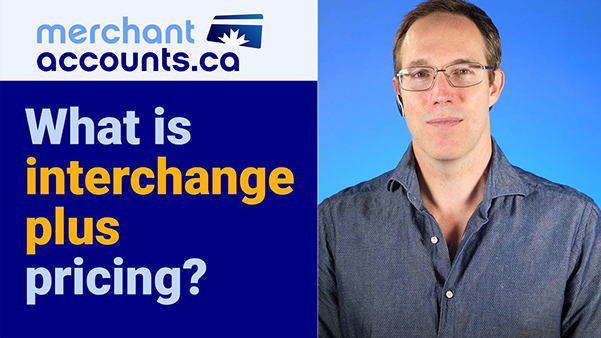
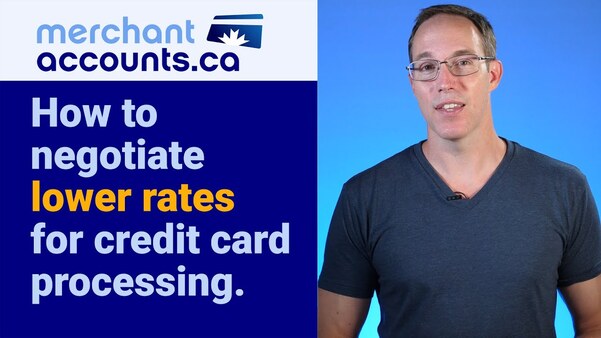

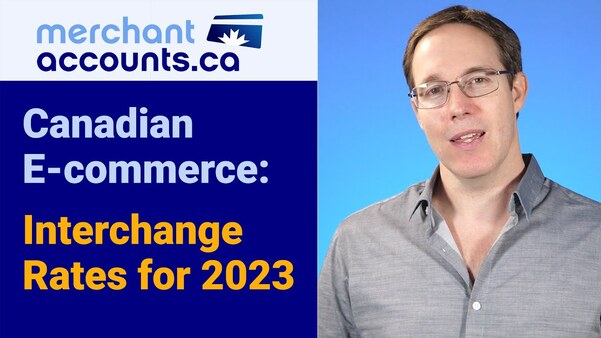
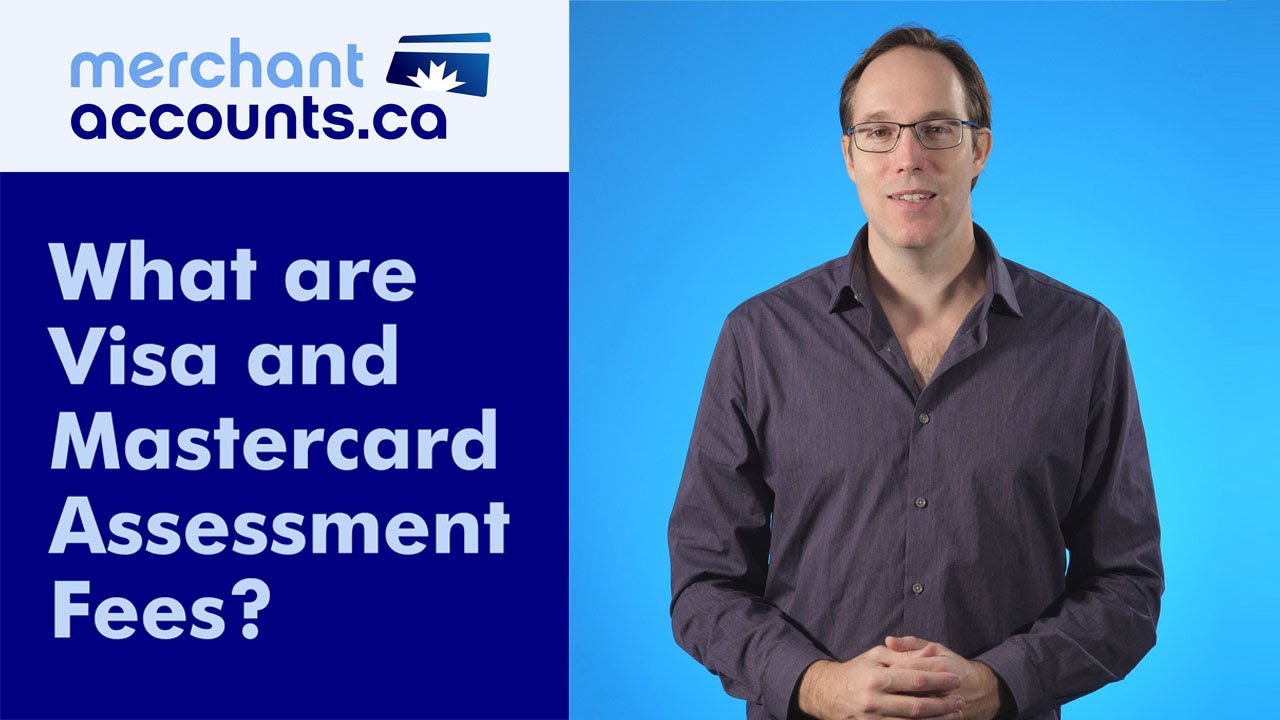
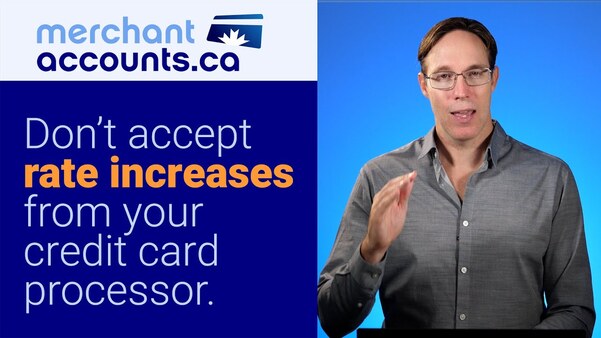
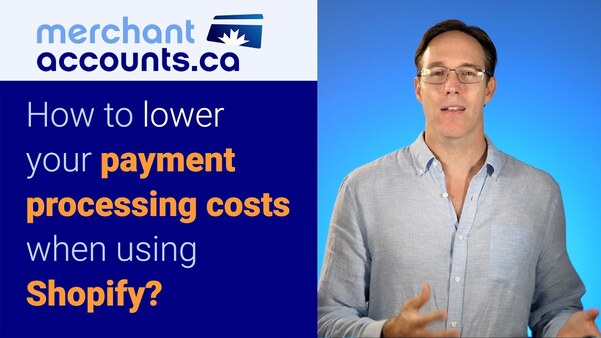
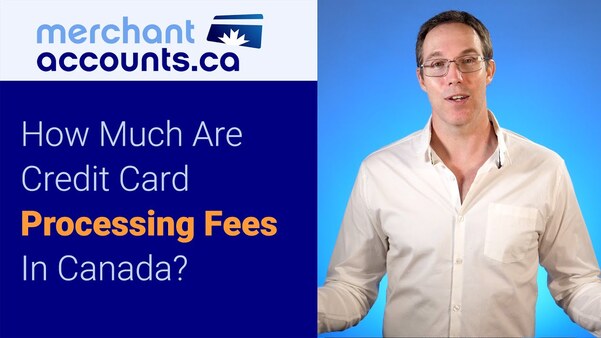


 My name is
My name is